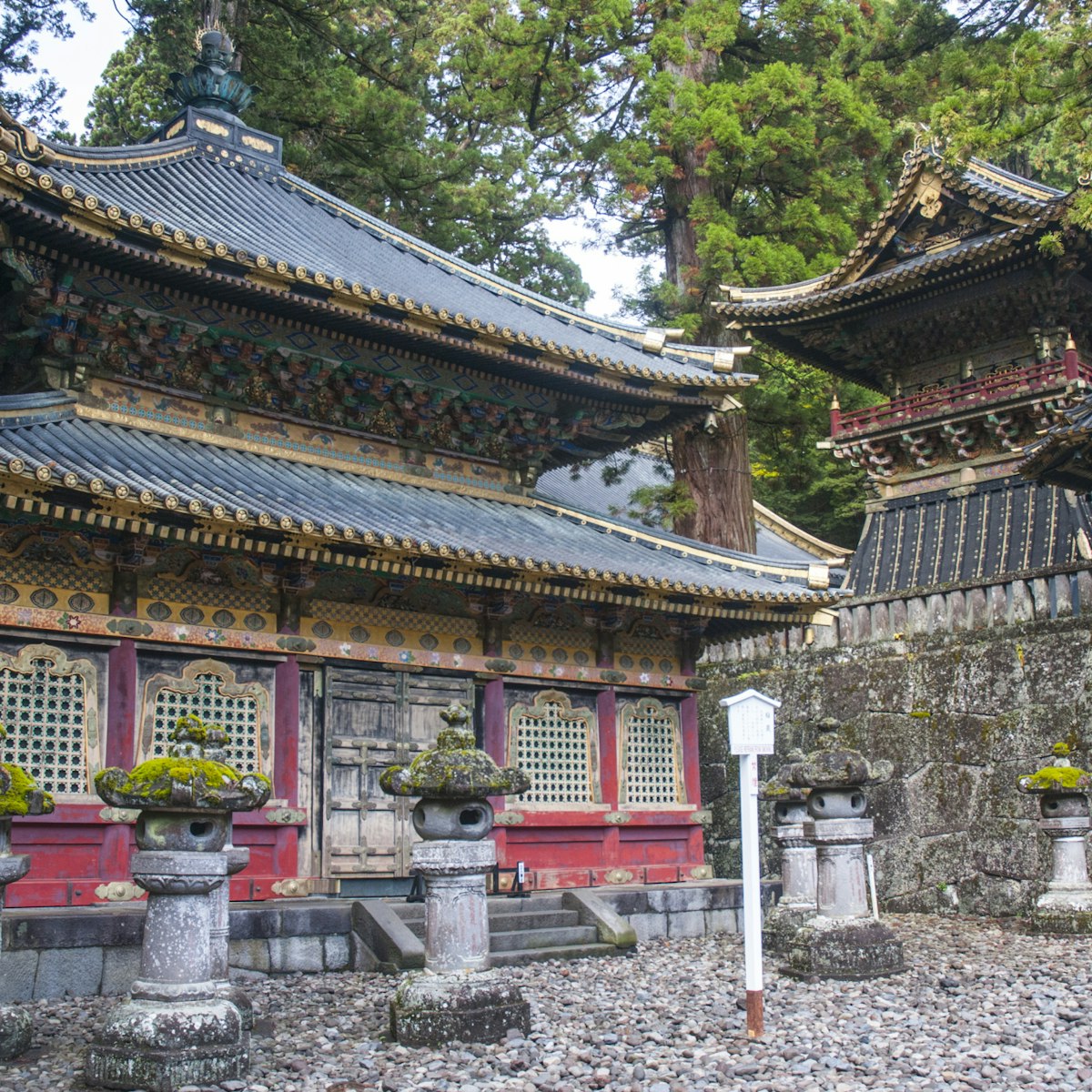The main shrine courtyard at Tōshō-gū includes the Honden (本殿; Main Hall) and Haiden (拝殿; Hall of Worship). Inside these halls are paintings of the 36 immortal poets of Kyoto, and a ceiling-painting pattern from the Momoyama period; note the 100 dragons, each different. Fusuma (sliding door) paintings depict a kirin (a mythical beast that's part giraffe and part dragon).
Lonely Planet's must-see attractions

Tōshō-gū is Nikkō's biggest attraction, a shrine to the powerful shogun, Tokugawa Ieyasu (1543–1616). No expense was spared: when the original structure …

0.25 MILES
Taiyū-in, completed in 1653, is the mausoleum of Tokugawa Iemitsu (1604–51), the third Tokugawa shogun and grandson of Ieyasu. (Ieyasu was deified, which…

0.77 MILES
Along this particularly scenic stretch of the Daiya-gawa, where white rapids swirl around rocks, is a row of Jizō statues, the small stone effigies of the…

0.21 MILES
Rinnō-ji's grand main hall, Sanbutsu-dō ('Hall of Three Buddhas'), was first built in 848; the current structure dates to 1645 and, with restoration work…

0.65 MILES
Just to the left of the entrance to Futarasan-jinja is a 1km wooded path leading to Takinō-jinja, part of the greater shrine precinct. Just in front is…

0.12 MILES
Futarasan-jinja was founded over 1200 years ago as a place to worship the mountain Nantai-san (2484m), his mountain consort, Nyohō-san (2483m), and their…

Nikkō Tamozawa Imperial Villa Memorial Park
0.55 MILES
About 1km west of Shin-kyō bridge, this splendidly restored imperial palace (c 1899) of more than 100 rooms showcases superb artisanship, with parts of…

0.02 MILES
Adorned in gold leaf and some 500 carved images depicting folk tales, mythical beasts and Chinese sages, the 'Sunset Gate' is the most revered traditional…
Nearby Nikkō attractions
Tōshō-gū is Nikkō's biggest attraction, a shrine to the powerful shogun, Tokugawa Ieyasu (1543–1616). No expense was spared: when the original structure …
0.01 MILES
This gateway on the east side of the main inner courtyard of Tōshō-gū is famous for its decorative carving of a sleeping cat (Nemuri-neko), which is much…
0.02 MILES
Adorned in gold leaf and some 500 carved images depicting folk tales, mythical beasts and Chinese sages, the 'Sunset Gate' is the most revered traditional…
0.03 MILES
To the west of Tōshō-gū's drum tower is this hall known for the painting on its ceiling of the Nakiryū (Crying Dragon). Monks demonstrate the hall's…
0.05 MILES
In Tōshō-gū's initial courtyard are these 'Three Sacred Storehouses'; on the upper storey of the Kamijinko (upper storehouse) are relief carvings of …
0.05 MILES
This 'Sacred Stable' building in Tōshō-gū's outer courtyard is crowned with relief carvings of monkeys. The allegorical 'hear no evil, see no evil, speak…
0.07 MILES
The appropriately solemn Okumiya, Ieyasu's tomb, is reached by some 200 steps through towering cedars to the rear of Tōshō-gū.


